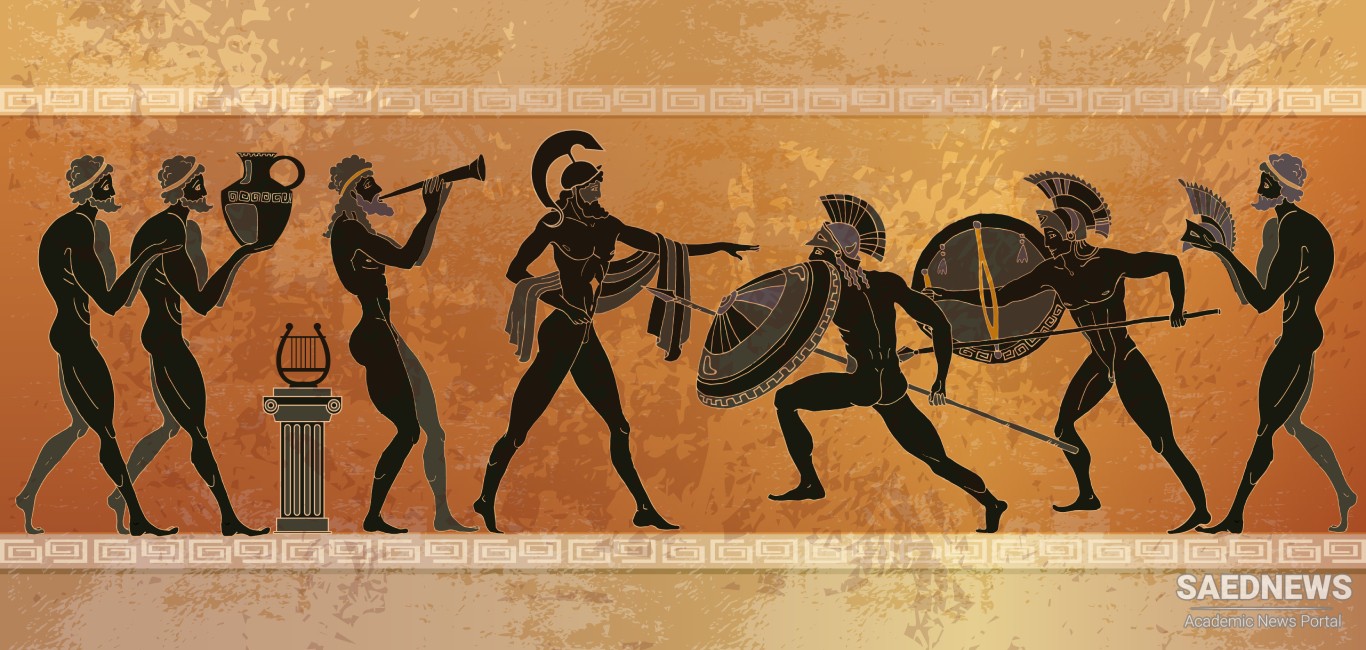At these points we find them also in the Greek religion. Certain herbs were laid beside a woman in childbed to ward off evil from her, and in Athens her clothing was disposed of by being dedicated! to Artemis Brauronia. On the fifth day the child was carried round the hearth and was thereby received into the protecting bosom of the family. The neighbourhood of death involves the presence of dangerous forces. against which protection is sought in many ways. The means of protection are most often called purifications, for they are intended to ward off the evil force which, like a plague, is communicated to everyone who comes into contact with it, Hence the woman in childbed and the dead man came to be regarded as infectious and unclean, and many ordinances (If purification were instituted. Anyone who visited their house became unclean and had to purify himself. Outside the house of mourning was placed a bowl of water, so that those who went out might be able to cleanse themselves. The water, and even the fire and the food, in the house became unclean, and these had to be fetched from outside. After the burial the house was purified, just as Odysseus purified his palace with fire and sulphur after the slaughter of the suitors.
The ideas of taboo became transformed into ideas of purity and impurity I when they were associated with a bdicf in the gods. Above all else the gods demand purity in those who approach them. Hence the bowl of water is placed at the temple door, so that those who enter may cleanse themselves. In Homer, Hector, when he returns from battle, wIll not pour out a libation to Zeus with unwashed hands. Hesiod demands that the bringer of a sacrifice shall be pure and clean; it is a rule of general application that the worshipper must be clean at sacrifice and prayer and when entering a shrine. Thesacrallaws exhibit a varied and comprehensive casuistry. The forbidden periods are determined so to speak according to the strength of the infection. Here are a few examples: Women in childbed are excluded from the temple for forty days, those who have come into contact with them only for two, those who have had a death in the family during twenty to forty days, those who have visited a house of mourhing for three days, and even those who have merely seen a corpse or taken part in the general ceremonies in connexion with a funeral are forbidden for the time being to visit the gods. Sexual intercourse between man and woman also renders both unclean for a shorter period. Hence none must be begotten, born, or die within the sacred precincts. The Athenians even went so far as upon two occasions to dig up all the old graves. Apollo's sacred island of Delos, and take away their contents.


 Greek Mythologies, Nature and Mysteries of the Universe
Greek Mythologies, Nature and Mysteries of the Universe














































